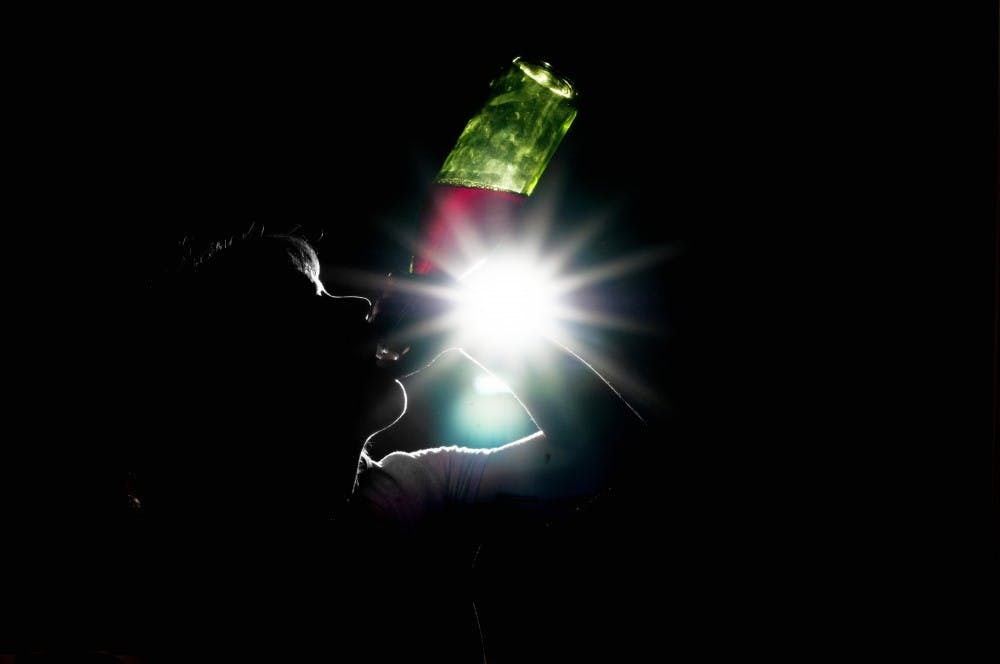More than 2,200 people die from alcohol poisoning each year, according to the Centers for Disease Control and Prevention, and Alcohol Awareness Month is the time to provide information about alcohol and its effects.
April is Alcohol Awareness Month, which was established in 1987 by the National Council on Alcoholism and Drug Dependence (NCADD). According to the NCADD’s website, it's a time to reach out and educate people about alcohol, alcoholism and recovery.
See our previous article about drinking and driving here.
Alcohol poisoning results from high blood alcohol levels.
Elizabeth Peeler, the health educator in the Office of Health, Alcohol and Drug Education, offered some facts about alcohol poisoning. The information also comes from the CDC and Ball State’s “Party Smart BSU” program.
Alcohol poisoning
- High levels of alcohol can shut down areas of the brain that control breathing, heart rate and body temperature.
- Alcoholism (alcohol dependence) was identified as a factor in 30 percent of alcohol poisoning deaths, according to the CDC.
- Engaging in binge drinking (which is classified as 4 drinks or more for women and 5 drinks or more for men in 2 hours) can lead to alcohol poisoning, Peeler said.
- Most deaths from alcohol poisoning (76 percent) were men.
Signs someone might have alcohol poisoning (not all signs must be present)
- The person is unable to be awakened; they don’t respond to shouting, shaking or poking.
- The person is unable to stand.
- They are vomiting while seeming “asleep” or when they are passed out.
- Their skin is cold and clammy; the skin may also turn a purplish color.
- Their breathing is slow or labored — this means 8 or less breaths per minute or lapses between breaths of more than 8 seconds, according to Party Smart BSU.
- The person has a rapid pulse rate.
What to do when someone has alcohol poisoning
- Call 911. If underage, don't be concerned with getting in trouble, as the Indiana Lifeline Law was put in place for this reason. Under certain conditions, the caller can have immunity for some offenses.
- Continually monitor the unconscious person. Do not leave them alone.
- Turn the person on their side to prevent choking if they start to vomit.
- Keep trying to wake them up.
- Do not give them any food or drink.
- Do not try to put them in a cold shower; this will not sober them up.





